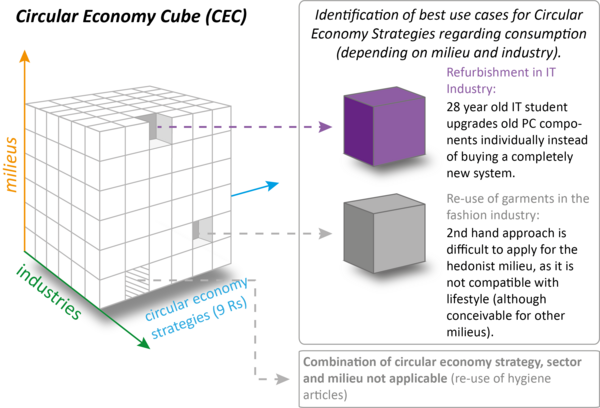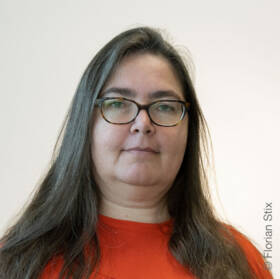Analysis of milieu-specific consumer behaviour aiming to strengthen circular economy.
Background
Climate change, pollution and resource depletion make it imperative to transform the prevailing linear economic system, which can be characterized by the buzzwords "make, use, throw away", into a sustainable circular system that predominantly focuses on "repair, reuse, recycle". New methods of recycling or reusing waste products are already receiving a great deal of attention, but stimulating changes in consumer behaviour by simultaneously involving broad segments of the population is still a neglected area of research. Without changes in consumer behaviour as well as milieu-specific measures, though, the transition to a circular economy is hardly manageable.
Project Content
A change towards a circular economy and the adjustments in consumer behaviour it includes, should go hand in hand with social inclusion (i.e., enabling people of different social strata to shape societal and social processes). Strategies should be in line with the nine "R"s of circular economy (e.g., reduce, repair, reuse, recycle) and special attention should be paid to social (laws, norms, culture, etc.) and individual (income, level of information, age, gender, etc.) factors. These factors form the framework and the boundaries for setting goals and implementing measures. In other words, sustainable consumption can only take place within certain "consumption corridors" that are shaped by social circumstances and individual capabilities.
Goals
This project examines which steps need to be taken to transform the current linear economic system into a circular economy without neglecting the social and personal circumstances that affect consumption behaviour. It is researched
- which resources and capacities the Austrian population has (or sees for themselves) to pave the way for a circular economy on a larger scale,
- whether and to what extent sustainability and circular economy play a role in consumer decisions and
- which interventions aimed at establishing a sustainable opportunity space and sustainable consumption decisions are regarded as useful from the point of view of those concerned.
It is expected that socio-economic factors result in differences concerning the options individuals have. These results lay the foundation for concepts that are tailored to individual needs and that enable finely tuned interventions.
Methods
A Circular Economy Cube (CEC) consisting of the "R "s (reduce, repair, reuse, recycle etc.) of the circular economy and the two factors industry and milieu, is devised. With the help of the CEC and Circularity Scores derived from it, potentials for change are identified. The scientific basis for the CEC is built on a systematic literature review and focus group interviews, during which the requirements, motives and attitudes of consumers and their purchase behaviour are surveyed. Expert interviews are conducted, suggestions for possible changes in consumption are validated in further group discussions, and, based on the findings obtained in previous steps, a representative online survey is performed. All this yields milieu-specific recommendations for action, which are (re-)evaluated together with relevant stakeholders in a workshop.
Results
In the present project, target group-specific strategies and measures for a circular economy are developed. These measures are derived from a Circular Economy Cube (CEC), which allows to uncover sector- and target group-specific potentials and to model milieu-specific strategies promoting the transition from a linear to a circular economy. Decision-makers and stakeholders are thus provided with an instrument that facilitates future course-setting with regard to consumption and RTI policy agendas.
CE4ALL Final Report (in German)
You want to know more? Feel free to ask!
Department of Rail Technology and Mobility
- tbw research GesmbH





